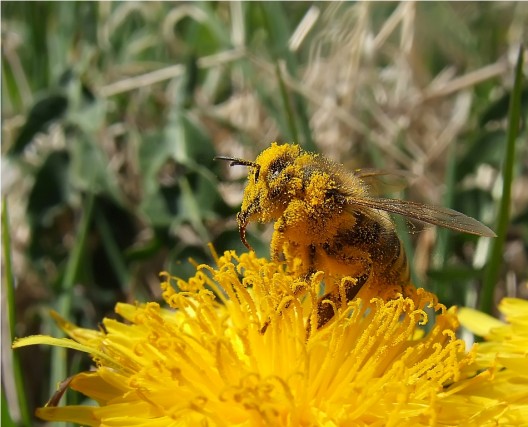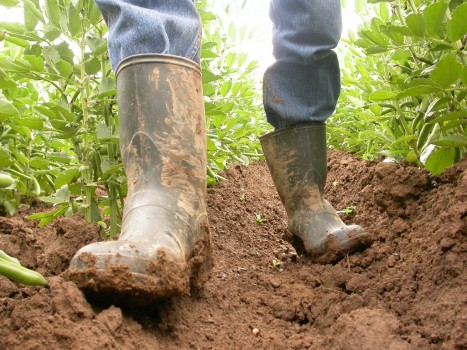Bees love organic
You may never have considered it, but bees are a farm animal too. They are kept for honey, bees wax and, last but not least, pollinisation of fruit trees and many other crops. Approximately 1/3 of all food on earth depends on pollinisation by bees. Einstein is often quoted for saying: "If bees have disappeared from the surface of the planet, mankind has only 4 years to live." Actually Einstein never said anything like that, but he should have, because it may very well be true.
In recent yeas bees have been dying in large numbers. The cause can be summarized as "industrial agriculture". Looking more closely the cause is threefold: large scale use of pesticides, especially neonicotinoids, reduced biodiversity and food sources, and spreading of bees diseases as a result of globalisation. In the Netherlands, honey bees have not occurred in the wild since the 80s. There are hundreds of species of wild bees and they are doing very badly as well. The founder of biodynamic agriculture, Rudolf Steiner, warned for the negative consequences of intensive beekeeping around 1910, when it came up. He predicted that the enthusiasm about it wouldn't last a 100 years.
Organic agriculture tackles at least two of the three causes of bees decline: it provides more diversity and food sources, and does not use neonicotinoids and other synthetical pesticides. Organic and biodynamic beekeepers treat their bees better. In 2012 Nature & More held the campaign "Bees love organic", where 400,000 sachets of organic bee flower seeds were distributed.





